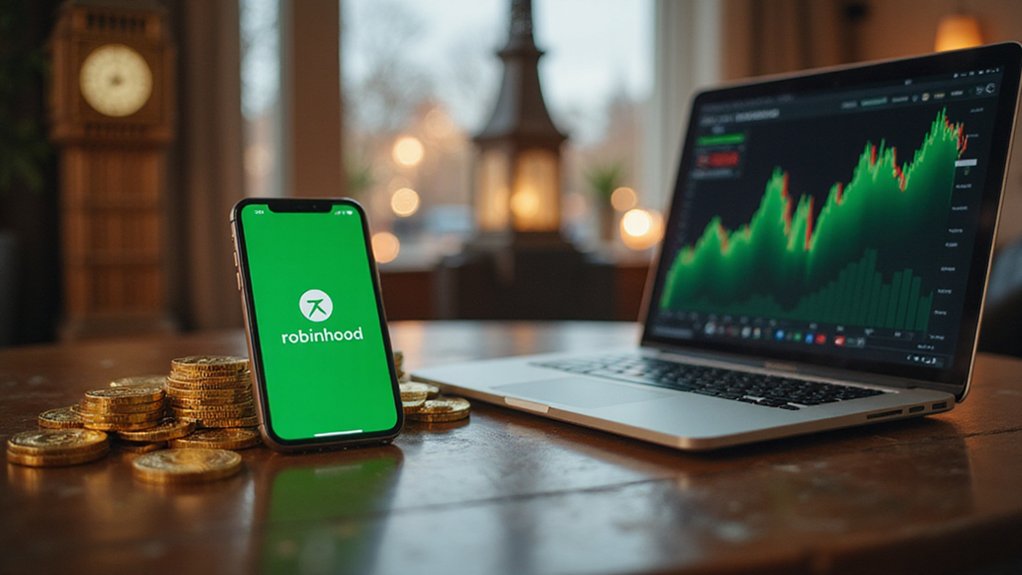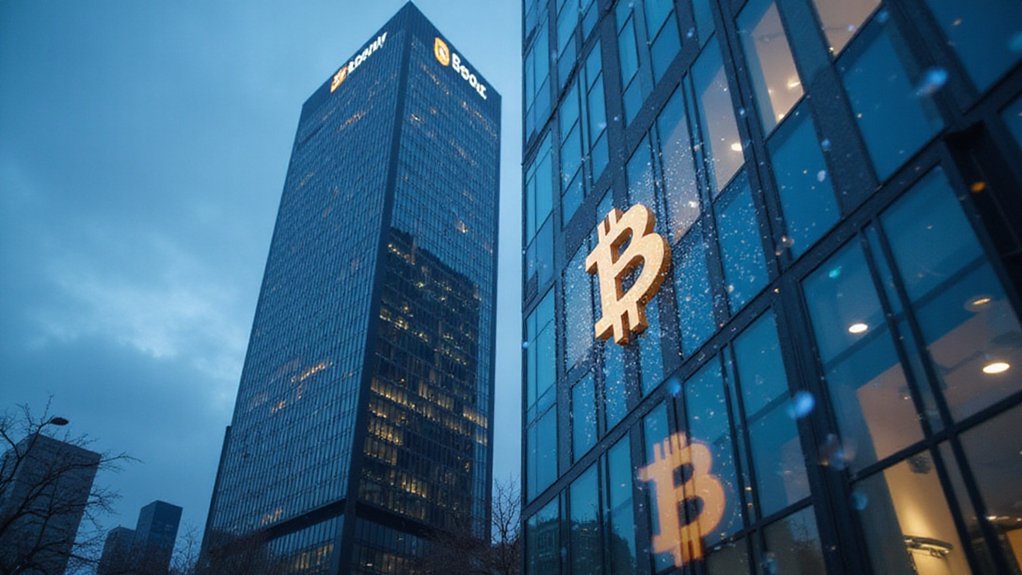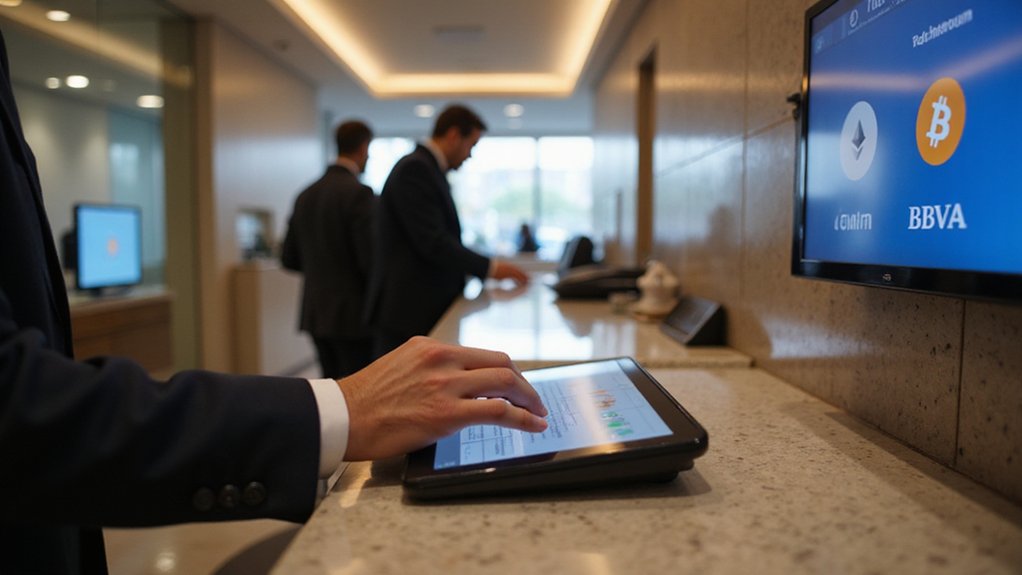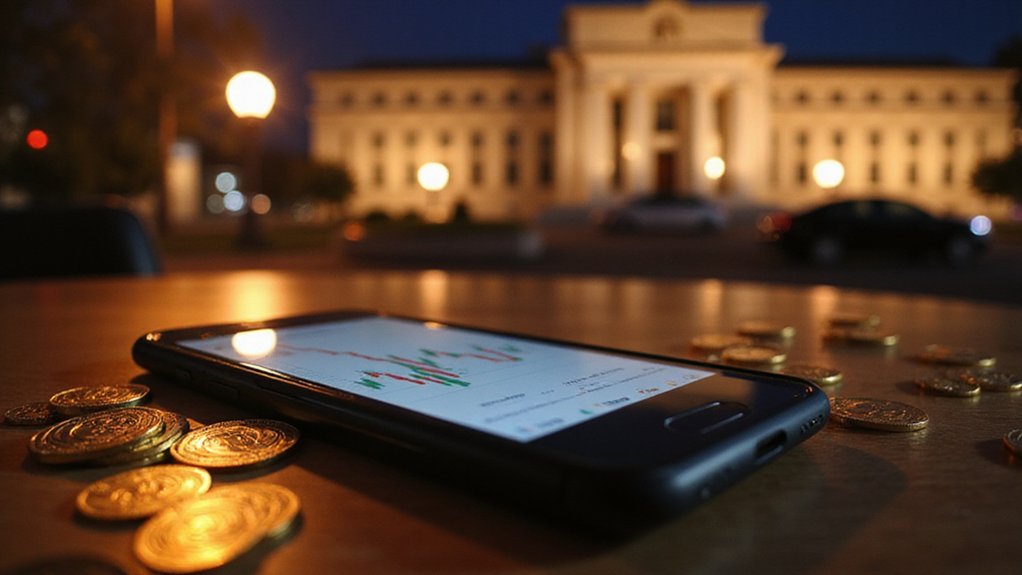Robinhood has orchestrated what might charitably be called regulatory arbitrage—or less charitably, an end run around American securities law—by launching tokenized stock offerings exclusively for European customers under the EU’s more permissive MiCA framework. This maneuver enables European investors to purchase fractional ownership in over 200 US stocks and ETFs through blockchain-based tokens, effectively circumventing the traditional gatekeeping mechanisms that typically restrict such access.
Robinhood’s European tokenized stock launch represents sophisticated regulatory arbitrage, exploiting jurisdictional differences to circumvent traditional American securities restrictions.
The platform’s initial deployment on Arbitrum represents merely the opening gambit in a broader technological chess match. Robinhood is developing its own Layer 2 blockchain specifically optimized for real-world asset tokenization, promising 24/7 trading capabilities and seamless cross-network bridging. This infrastructure will theoretically allow continuous market access—because apparently, the psychological torture of watching portfolio values fluctuate during market hours wasn’t sufficient.
Perhaps most intriguingly, the venture extends beyond conventional equities into private equity territory, offering tokenized access to high-growth companies like SpaceX and OpenAI. This development fundamentally democratizes investments traditionally reserved for accredited investors (those wealthy enough to absorb catastrophic losses while maintaining their lifestyle). The implications are profound: retail investors can now participate in pre-IPO opportunities that were previously the exclusive domain of institutional capital.
The regulatory asymmetry between American and European frameworks creates a fascinating paradox where US companies become more accessible to European retail investors than to their American counterparts. This geographic arbitrage highlights the increasingly fragmented nature of global financial regulation, where innovation migrates toward jurisdictions offering the most accommodating legal structures.
Robinhood’s blockchain implementation includes provisions for dividend payments directly within the application, along with self-custody options that theoretically enhance security and privacy. The platform’s emphasis on fractional ownership addresses accessibility concerns, allowing smaller investors to diversify across previously prohibitive asset classes. The tokenization system relies on smart contracts to automate trading and settlement processes, eliminating the need for traditional financial intermediaries while maintaining transparency and efficiency. The company has simultaneously introduced crypto perpetual futures with up to 3x leverage, providing continuous derivatives exposure for sophisticated European traders seeking amplified market positions. The transition represents Robinhood’s strategic pivot from a crypto-only app to a comprehensive investment ecosystem that serves multiple asset classes.
However, this democratization raises critical questions about investor education and risk comprehension. While tokenization reduces barriers to entry, it doesn’t diminish the underlying volatility or complexity of these investments. The success of this venture will likely depend on whether European investors can navigate the intersection of traditional securities analysis and blockchain technology without succumbing to the speculative fervor that has historically characterized crypto markets.









